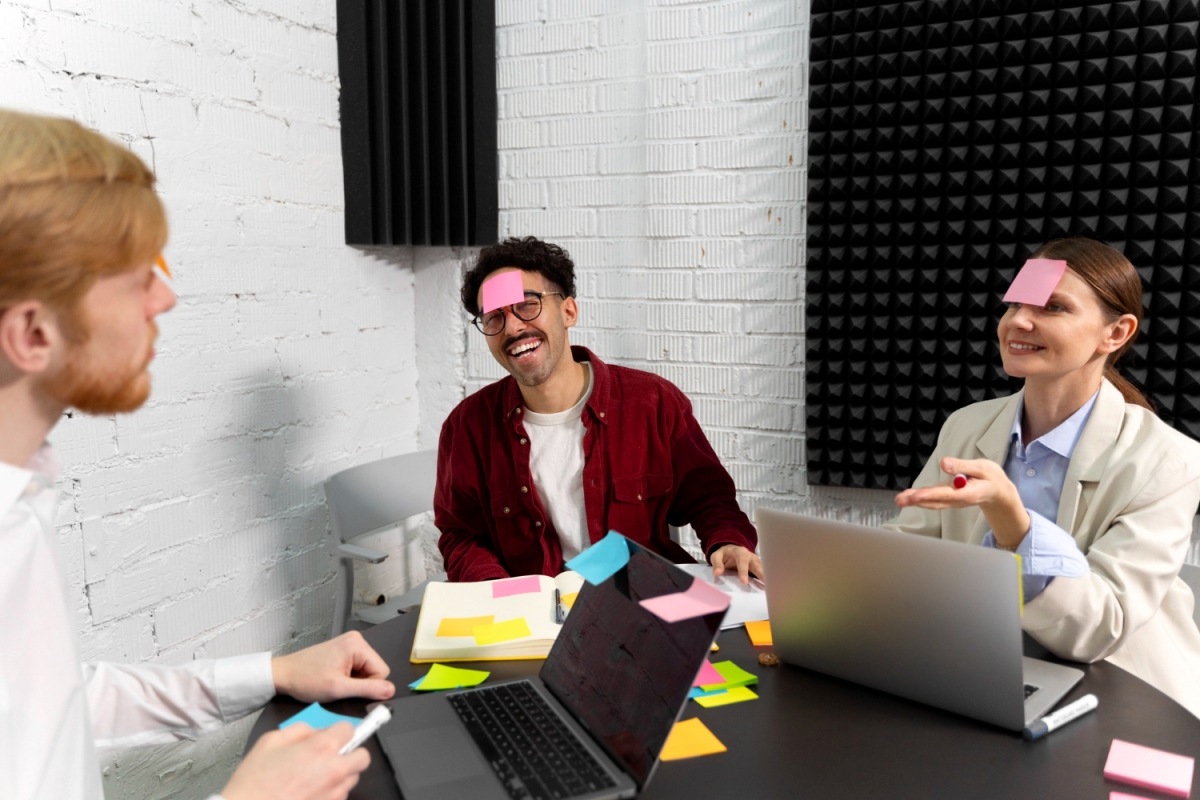When was the last time you drove on the wrong side of the road?
Not literally, of course.
I’m talking about turning off ‘autopilot’ and venturing into unfamiliar territory – in the pursuit of growth and learning. Stanford University psychologist Carol Dweck refers to this as having a ‘growth mindset’, which has been shown to improve motivation and productivity in business, education and sports.
Last month, I travelled to the United States for two distinctly different learning experiences. The first involved spending two weeks at the Harvard Negotiation Institute, diving even deeper into the theory and practice of negotiation. The second involved a 3.5-hour road trip from Cambridge, Massachusetts, to Rockland, Maine – my first experience of driving on the ‘wrong’ side of the road.
Driving along the I-95 Highway, I gained some valuable insights into the learning process.
If you’re a lifelong learner (someone with a ‘growth mindset’), or trying to promote lifelong learning around you, read on to learn about the challenges of learning and how to make it more effective and enjoyable.
Learning about learning

‘Four Stages of Competence’ Learning Model (Source: Gordon Training International)
The ‘Four Stages of Competence’ model suggests that we move through the following stages when learning something new:
- Unconscious Incompetence – we don’t know what we don’t know
- Conscious Incompetence – we know what we don’t know
- Conscious Competence – we know what we know
- Unconscious Competence – we don’t know what we know
In short, learning involves the realisation you don’t know something (moving from Stage 1 to Stage 2), the application of effort to develop knowledge or skill (Stage 2 to 3) and, with practice, the creation of stable neural pathways that allow the knowledge or skill to be accessed naturally (Stage 3 to 4). And repeat.
To be an effective lifelong learner, it helps to be aware of where you are in the cycle, and the challenges and opportunities each stage provides.
Stage 1 – Unconscious Incompetence
The challenge: Ignorance is bliss, so you could be stuck in this stage for a while without knowing it. (By definition, you’re unaware of it.) The challenge is to provoke the realisation that there’s a need for development. So how do you acquire this self-awareness?
The opportunity: To move out of Stage 1, think about where the gaps might be in your current knowledge or skills. For example, notice where issues consistently arise in your life and ask yourself why this could be occurring.
What if you’re not sure?
- Ask for feedback: It can be confronting to give and receive feedback, so frame the conversation with a specific request: “What is one thing I could do differently to improve my performance/move my career forward/etc?” Formal training can also provide opportunities to obtain feedback from experts and peers in a safe environment.
- Create a ‘learning habit’: A few years ago, I decided to try something new every month. I attended classes in areas as diverse as illustration, jazz piano and philosophy. The new thing doesn’t have to be directly related to your career/job to be beneficial, as long as it stimulates your mind and reinforces your love of learning.
Stage 2 – Conscious incompetence
The challenge: It can be uncomfortable to realise you’re not the expert you’d like to be. Every so often, we’ll see a participant in one of our workshops whose sole purpose is to validate what they’re already doing. While it’s important to acknowledge what’s working well, it’s also important to expose any blindspots so you can continue to expand and refine your skills.
The opportunity: In Zen Buddhism, the concept of shoshin (‘beginner’s mind’) refers to a mind that is constantly open and searching for new truths.
“In the beginner’s mind there are many possibilities, but in the expert’s there are few.” ~ Shunryu Suzuki
When learning feels uncomfortable, it’s because we’re not giving ourselves permission to be a beginner. You wouldn’t scold a baby for falling over while taking their first steps. On the contrary, every attempt – successful or not – is something to be encouraged and even celebrated. That’s how all learning should be!
So how can we adopt a beginner’s mind?
- Expect the unexpected: The most surprising thing I experienced when driving in the U.S. was when I clipped the kerb quite badly while turning right. Driving from the left-hand side of the car, I hadn’t realised my spatial orientation needed recalibrating. When this happened, shifting from criticism to curiosity helped me to recover quickly and even enjoy the moment.
- Cultivate humility: When learning any new skill, you can be humble or be humbled by the experience. The former is a choice; the latter is often the result of not making that choice. At Harvard, I was left scratching my head after one negotiation in which I felt I had settled too quickly. After debating with my inner critic for 10 or 15 minutes, I called a time out and switched to digging for the lesson. From then on, I told myself that if I wasn’t making mistakes, I was playing it too safe. This simple mindset shift removed the focus on ‘getting it right’ and enabled me to gain deeper insights into how I typically think and behave under pressure.
- Put your L-plates on: If you’re concerned about what others might think of you while you’re in ‘learner mode’, tell them. Being transparent about your uncertainty may create an opportunity for them to support you.
Stage 3 – Conscious Competence
The challenge: Ah, we’ve arrived at our destination. Or have we? That “Eureka!” moment we experience when we acquire a new insight or skill can quickly dissolve into frustration, disappointment and self-doubt when we trip up a few moments later. This happens because the new skill hasn’t yet become a habit.
The opportunity: As powerful as it is, the human brain has limited capacity. During the Conscious Competence stage of learning, our mental resources may be exhausted, so it’s important that we manage these resources effectively. But how?
- Be prepared: Take your time to familiarise yourself with the new terrain and create a road map (with clear objectives) for your learning journey. Before I drove in the U.S., I researched the road rules and plotted my route carefully. This helped to reduce the cognitive load on my brain as it grappled with other new experiences.
- Manage your attention: In CMA’s workshops, we break down the learning process into manageable chunks, and we encourage clients to focus on one behavioural change at a time. We also encourage clients to limit distractions (like mobile phones!) that might otherwise consume valuable ‘mental bandwidth’. By starting my road trip early on a Sunday morning, I gave myself space to focus on becoming familiar with the vehicle and road conditions before adding in the complexity of heavy traffic. For the first 20 minutes, it took all of my attention just to stay in the middle of the lane!
- Manage your energy: Learning is an energy-intensive process. Your brain is making new neural connections, so it pays to manage your mental resources accordingly. This includes eating nutrient-rich food, staying hydrated, exercising regularly, and getting enough sleep. The importance of sleep, in particular, has been well-documented in numerous studies. The famous ‘10,000 hours’ study cited by Malcolm Gladwell in Outliers revealed that mastery was not only associated with the number of hours devoted to practice, but it was significantly related to the fact that the subjects took naps after each practice session.
- Practice: Creating a new neural pathway is like wearing down a path through a field of grass. If you only walk a certain path once in a while, it’ll grow over. If you walk the same path repeatedly, the grass will gradually wear down and the path becomes clearer and easier to access in the future.
This leads to…
Stage 4 – Unconscious Competence
The challenge: “Look Mum – no hands!” It’s extremely satisfying to achieve a level of competence that requires minimal (if any) conscious thought or effort. The challenge is that some skills require constant practice to be maintained. For example, the skill of listening deeply is one that must be consciously activated. If we assume we’ve acquired a skill, there’s a risk that we’ll become complacent about the attention and effort required to maintain it.
The opportunity: Some skills need to be treated as ‘practices’. You wouldn’t expect to go to the gym once or twice and maintain your fitness indefinitely after that. If a skill is important to you, you’ll find ways to practice it regularly to ensure it’s there when you need it most.
We live in an era of lifelong learning. It takes courage to learn, especially in an area in which you already have some expertise. What are your strategies for making learning more effective and enjoyable?
“When I let go of what I am, I become what I might be” ~ Lao Tzu


















